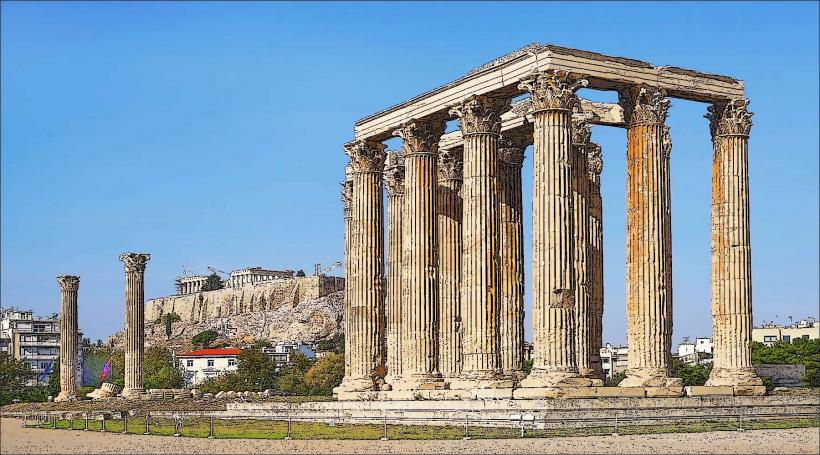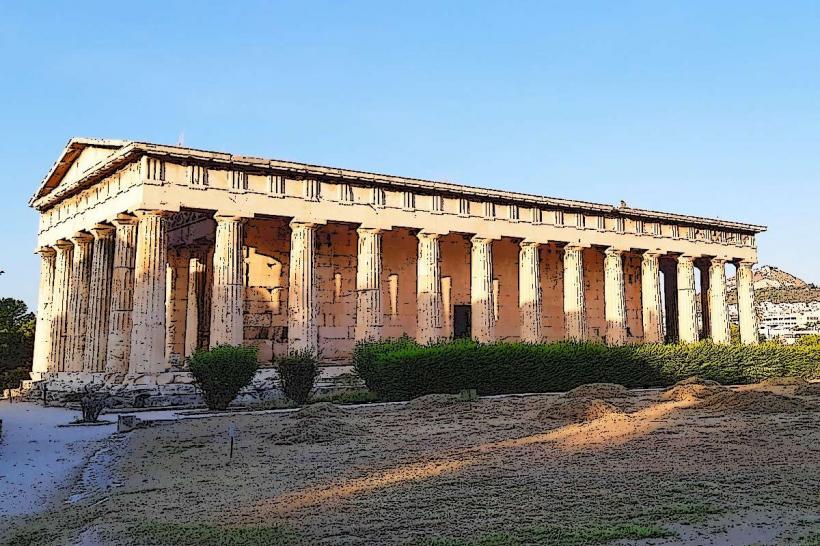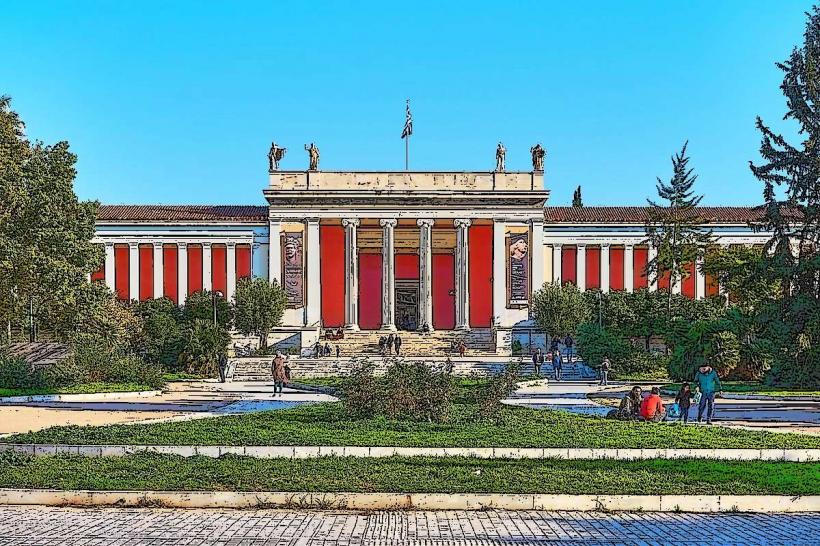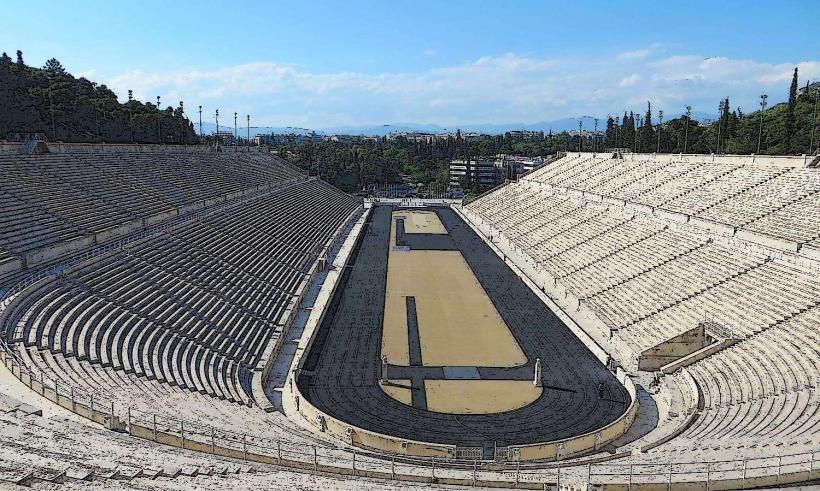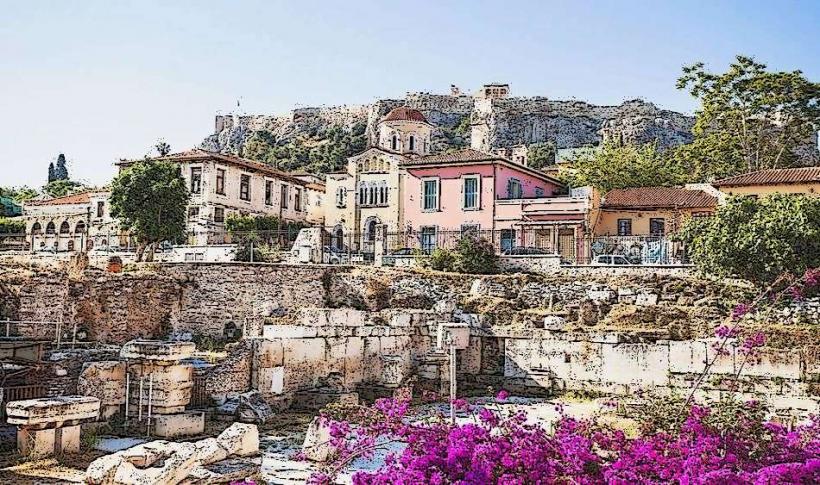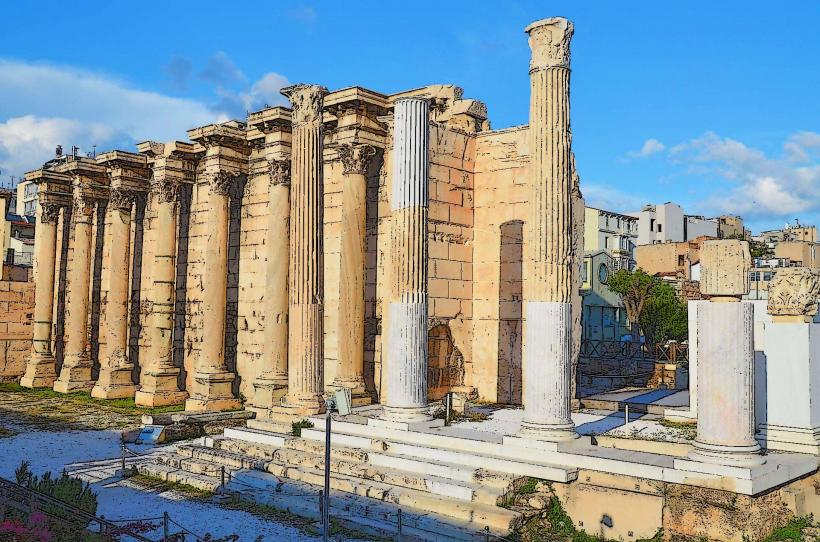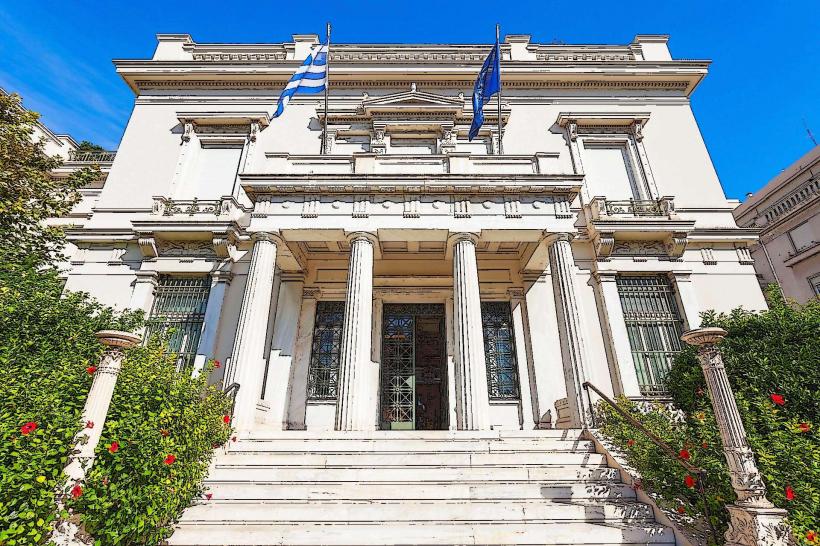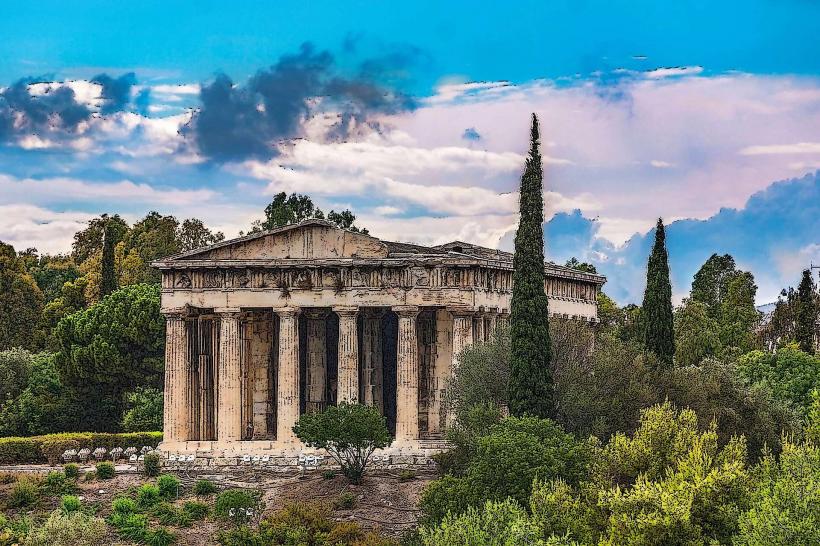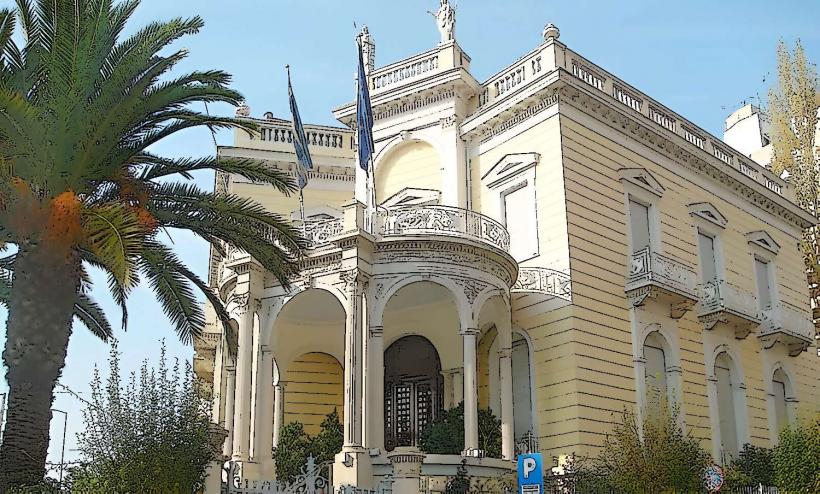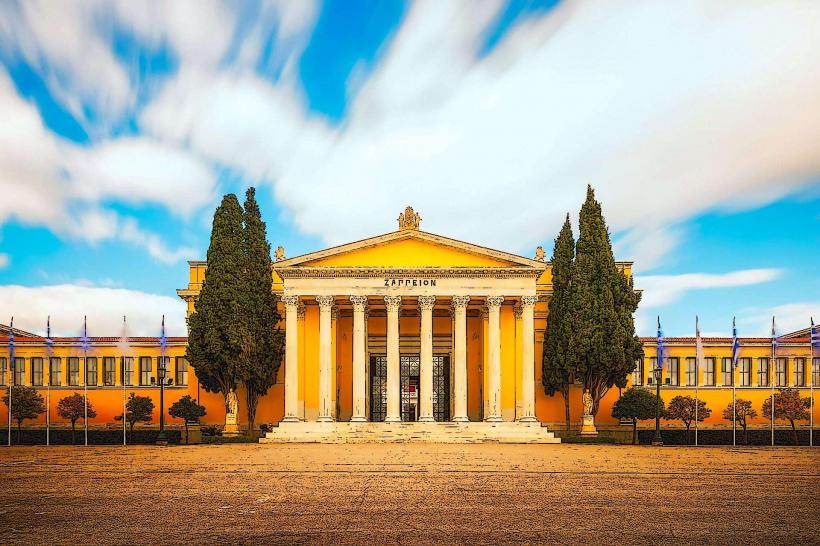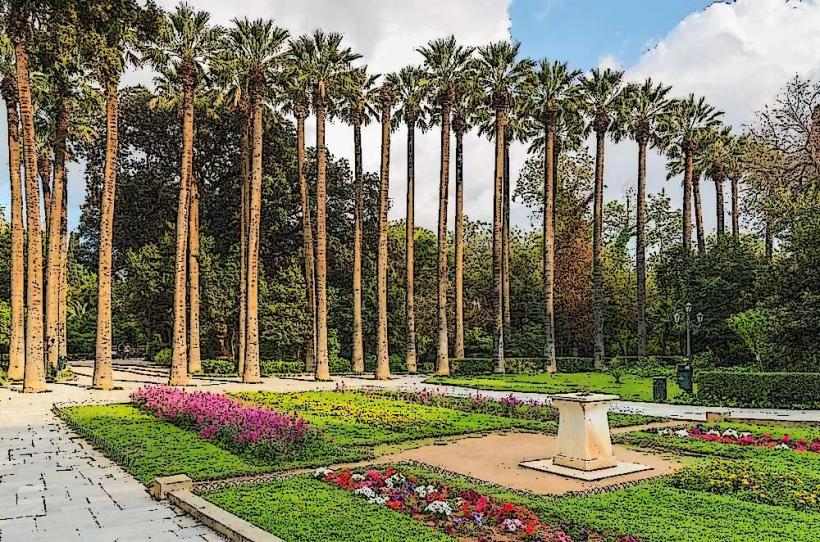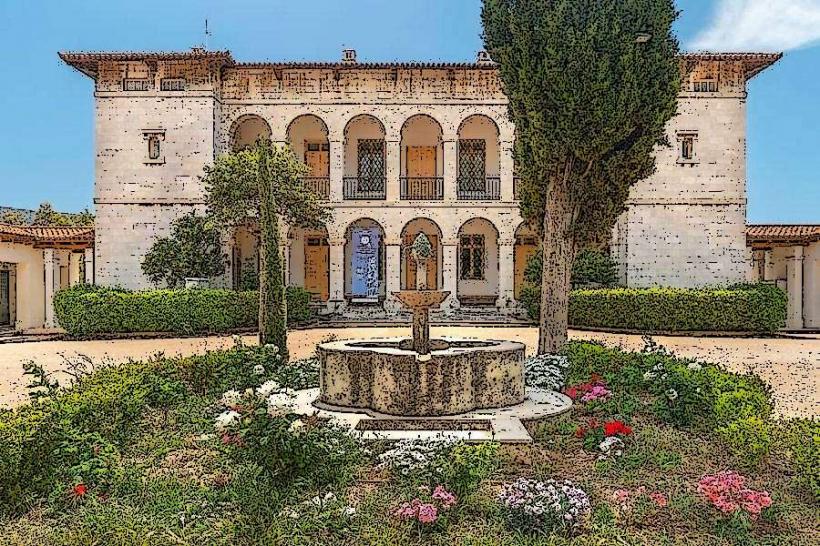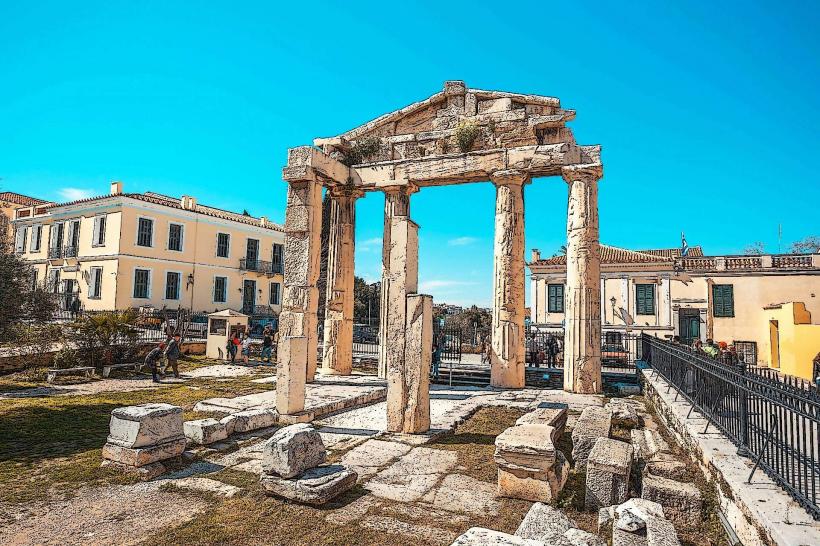Information
Landmark: Syntagma SquareCity: Athens
Country: Greece
Continent: Europe
Syntagma Square, Athens, Greece, Europe
Syntagma Square is the central transportation and political hub of Athens, situated in front of the Hellenic Parliament at the intersection of Vasilissis Amalias Avenue and Vasileos Georgiou I Street. It serves as the symbolic heart of modern Greece, functioning as both a major transit interchange and a site for civic assembly.
Visual Characteristics
The square is a multi-level limestone and marble plaza featuring a central fountain and symmetrical rows of orange and cypress trees. The eastern side is defined by a grand marble staircase leading to the Tomb of the Unknown Soldier, while the western side opens onto the commercial district. The surrounding architecture consists of mid-19th-century neoclassical buildings and mid-20th-century hotels, with the Hellenic Parliament's ochre and white facade dominating the eastern elevation.
Location & Access Logistics
The square is located at the center of Athens, approximately 34km from Athens International Airport (ATH) via the A3 motor-way or the Metro. It is the primary station for Metro Line 2 (Red), Line 3 (Blue), and the Athens Tram network. Pedestrian access is unrestricted from all cardinal directions. No public vehicle parking is permitted on the square; commercial garages are located in the neighboring Syntagma and Plaka districts.
Historical & Ecological Origin
The square was designed and constructed in the early 19th century following the transfer of the Greek capital to Athens in 1834. It was originally named Palace Square but was renamed Syntagma (Constitution) Square following the popular uprising on September 3, 1843, which compelled King Otto to grant a constitution. The Old Royal Palace, which now houses the Hellenic Parliament, was completed in 1843 by architect Friedrich von Gärtner.
Key Highlights & Activities
Visitors observe the ceremonial "Changing of the Guard" performed by the Evzones (Presidential Guard) in front of the Hellenic Parliament every hour. The Syntagma Metro Station contains an in-situ archaeological exhibition displaying ancient walls, drainage systems, and graves discovered during excavation. The square serves as the starting point for Ermou Street, the city's primary pedestrian shopping corridor.
Infrastructure & Amenities
Public restrooms and baby-changing facilities are located within the Syntagma Metro Station. The plaza is equipped with municipal benches and limited shade provided by the tree-lined perimeters. 5G cellular signal is highly stable throughout the open area. High-density retail and food vendors, including international chains and traditional kiosks (periptera), line the northern and western edges.
Best Time to Visit
The ceremonial Changing of the Guard is best viewed on Sundays at 11:00 AM when the full official uniform is worn and a military band is present. Photography of the Parliament is optimal in the morning hours to avoid direct backlighting. The square is the site of the city's primary Christmas and Easter celebrations during late December and April/May.
Facts & Legends
A verified historical oddity is located inside the Syntagma Metro Station, where a cross-section of the city's geological and archaeological strata is preserved behind glass, showing layers ranging from the 5th century BC to the modern era. The square's pigeons are a distinct local fixture, often cited in urban lore as the "unofficial guardians" of the central fountain.
Nearby Landmarks
Hellenic Parliament: 0.05km East
Tomb of the Unknown Soldier: 0.05km East
National Garden: 0.2km Southeast
Ermou Street: 0.1km West
Metropolitan Cathedral of Athens: 0.5km West




